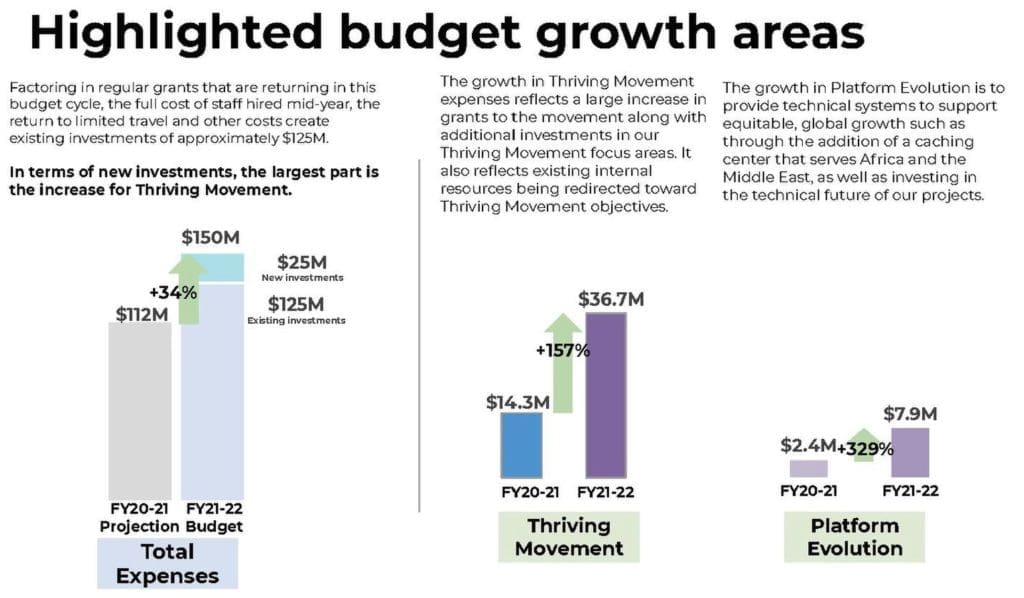Wikipedia is currently running a six-week fundraising campaign. The banner ads beg for just a few dollars, which doesn’t sound like much, for all that free information. The truth, however, is that the Wikimedia Foundation (WMF), the non-profit that owns Wikipedia, sits on an ever-growing pile of cash. In 2020-2021 fiscal year it reached its 10-year goal of creating a $100 million endowment. Five years earlier than planned. The NGO raised $154 million from over 7.7 million donors last year.
These banner ads have become very lucrative for the WMF. Every year the NGO adds tens of millions of dollars to its war chest. After a decade of professional fund-raising, it has amassed $400 million of cash as of March 2022. In 2016, it created the Wikimedia Endowment, managed by the Tides Foundation, which now holds well over $100 million of that. In 2021, they recorded donations of some $154 million and booked revenues of $162 million, a 50% year-on-year increase. Plus, they have the $100 million endowment. Yet the running costs of Wikipedia are a tiny fraction of the amount raised each year.

While the raised more then $150 million last year, the costs of running the Wikipedia platform are estimated to be only around $10 to 15 million a year. According to the foundation’s budget, less than $8 million are used for the platform evolution.
The free knowledge platform is powered by an army of voluntarily contributing people. They are paid nothing. However, WMF allegedly employs more than 500 people, with top managers earning $300,000 to $400,000 a year. Over 40 people work exclusively on fundraising.
The WMF’s financial independence is clearly not at risk. They are sitting on a pile of cash. The NGO has high-flying, global plans to “become the essential infrastructure of the ecosystem of free knowledge” by 2030. It says it wants to create “knowledge equity”—a world where people everywhere will have as much access to information in their own language as a first-world citizen.
